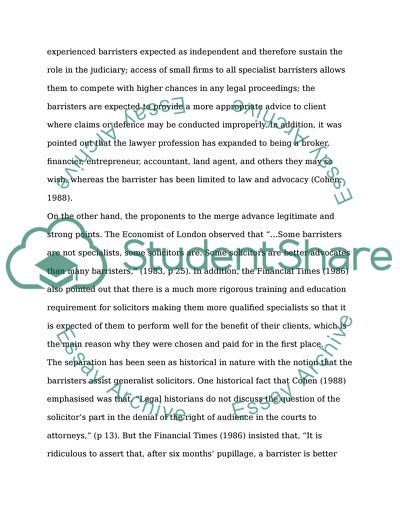Cite this document
(“Is There a Separation of The Professions of Barrister and Solicitor Essay”, n.d.)
Retrieved from https://studentshare.org/social-science/1405473-coursework-topic-critically-discuss-the-following
Retrieved from https://studentshare.org/social-science/1405473-coursework-topic-critically-discuss-the-following
(Is There a Separation of The Professions of Barrister and Solicitor Essay)
https://studentshare.org/social-science/1405473-coursework-topic-critically-discuss-the-following.
https://studentshare.org/social-science/1405473-coursework-topic-critically-discuss-the-following.
“Is There a Separation of The Professions of Barrister and Solicitor Essay”, n.d. https://studentshare.org/social-science/1405473-coursework-topic-critically-discuss-the-following.


